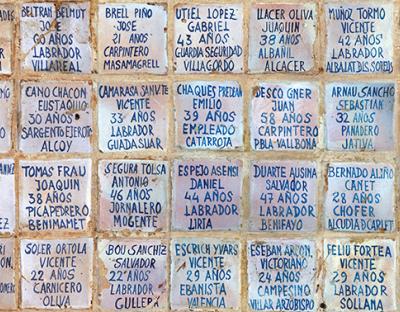Presentation of the books «Cuando ya no quede nadie», by Esther López Barceló and «Dicen», by Susana Sánchez Arins. Both authors will be present and Pepa García Hernandorena will be the presenter.
Cuando ya no quede nadie (When nobody is left anymore) (Grijalbo, 2023), by Esther López Barceló.
Ofelia has just lost her father and, after receiving the news, she returns to her hometown. Once there, she finds not only her childhood home, but also a family past she was unaware of.
A mysterious Frenchman has turned up at the funeral who turns out to know much more about her father than she ever did. It is then that Ofelia wonders who her parents, whom she always saw as a humble railway worker and a stately concierge, really were.
What she is about to discover could completely disrupt her perception of life, her family and the history of our country.
Esther López Barceló (Alicante, 1983) is a history teacher, writer and cultural disseminator. She was a member of the Corts Valencianes between 2011 and 2015 for IU. With a degree in History, specialising in archaeology from the University of Alicante, she took part in the first exhumation of mass graves in a cemetery in Almansa in 2004. Her sensitivity towards the victims of Francoism is the reason that led her to write the book Testimonio de la memoria (Testimony of memory) (2011). In July 2018, she coordinated the drafting of a Democratic Memory Bill together with Alberto Garzón and representatives of memorialist associations.
She currently directs the Aula Didáctica de la Memoria Democrática of the Conselleria de Educació, Cultura i Esport.
Dicen (They say) (De Conatus, 2019), by Susana Sánchez Arins.
Dicen recounts real events in a network of voices silenced for generations. It is not written from political reflection, but from poetic justice. It is a contemporary account of the Spanish post-war period.
It is not poetry; it is not an essay; it is not a short narrative; and it is everything at once. Written in short sequences, it gathers the intimate memory of a family and reconstructs their insignificant lives to show the terror of repression after the Civil War. Conversations, poems, stories, essayistic references, fragmented sequences that the reader arranges into a powerful story.
The narrative drags the reader to the end by the rhythm, the different voices, the authenticity and the gradual understanding of why that era is silenced.
The author speaks of poetic justice as a way of giving life to those who did not want to be named after their death: the repressors. This story recovers their names, their ways of acting, their personalities, their power. And it also brings back to life those who died in the ditches or lived marginalised: the repressed.
Susana Sánchez Arins (Vilagarcía de Arousa, 1974) grew up in Foxo, inland. She studied Hispanic and Portuguese Philology at the University of Santiago de Compostela and obtained a DEA in Comparative Literature. She is a secondary school teacher. She studied and works in public schools.
In 2008 she won the XXI National Poetry Prize Xosé María Pérez Parallé with the work (de) construçom (Construction) (2009), followed by the poetry collections Aquilatadas (Tested) (2012). In 2012 he published Seique (I know that) and in 2018 the poetic plaquette Carne da miña carne (Flesh of my flesh) and the book of short stories Tu contas e eu conto (You count and I count).
